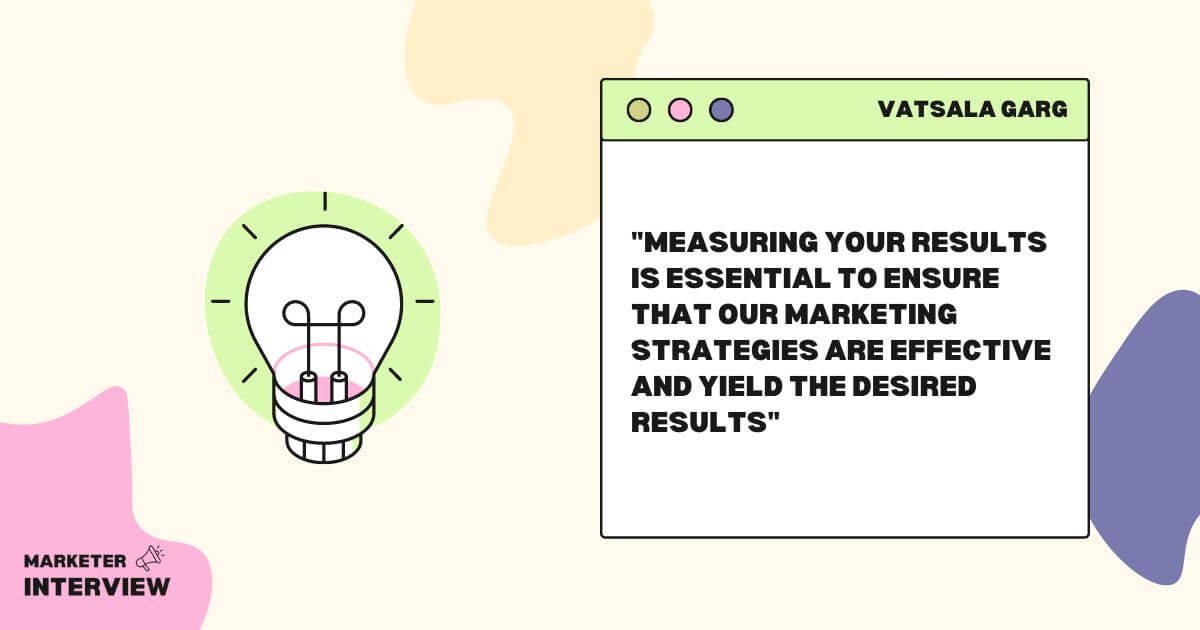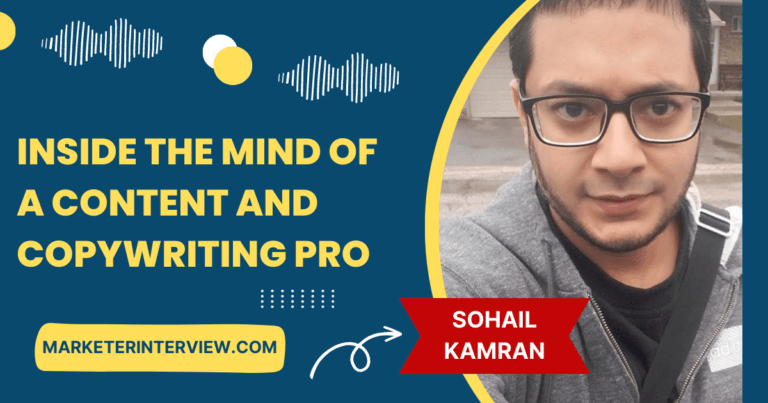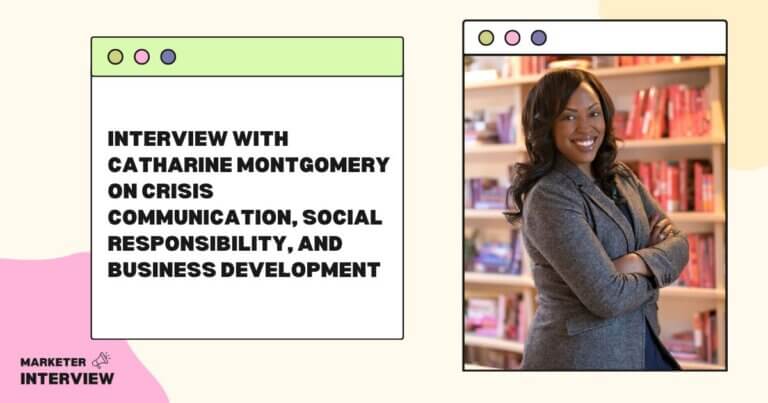Insights with Vatsala Garg: Content Writing & Leadership Strategies
Today, we are pleased to interview Vatsala Garg, Lead of Marketing at InfoBeans Technologies.
With over 15 years of experience in Content Marketing and Development, Project Management, and Editorial Planning across IT, Project Consultancy, and E-commerce, Vatsala is a strategic professional with proven expertise in managing corporate and media relations.
She also leads global marketing efforts with hands-on knowledge of various geographies, including the US, UK, and ME. In addition to her marketing prowess, Vatsala is a likable podcast host, and she leads a team of SEO experts and executives.
We’re excited to hear more about Vatsala’s impressive career and get her insights into the marketing industry.
Contents
- 1 What inspired you to pursue a career in marketing?
- 2 What are the most critical skills you need to succeed in your role?
- 3 Can you tell us about a particularly challenging project you worked on?
- 4 What do you consider to be the most outstanding achievement in your career so far?
- 5 How do you stay current with the latest marketing trends and technologies?
- 6 Can you walk us through your process for developing marketing strategies and campaigns?
- 7 How do you measure the success of your marketing efforts?
- 8 What tools and software do you use to manage your marketing campaigns and projects?
- 9 Can you share a piece of marketing advice that has served you well throughout your career?
- 10 What do you think are the biggest challenges facing marketers today?
What inspired you to pursue a career in marketing?
As technology advances, companies require marketing professionals who understand how to use digital tools and platforms to reach their target audience and achieve business goals.
The whopping demand for marketing professionals and my passion for content enticed me to pursue a career in marketing. I started as a content writer and moved up the ladder. Today, I handle the entire marketing function.
What are the most critical skills you need to succeed in your role?
Strategic thinking is paramount to understanding the big picture and how my marketing efforts fit the business strategy.
Creativity and communication also play an integral role. While creativity involves creating innovative ideas to capture your target audience’s attention, communication involves effectively communicating your ideas to your team, clients, and customers.
Besides, analytical skills, digital marketing expertise, and a little exposure to project management are also vital.
Can you tell us about a particularly challenging project you worked on?
Launching a web page in just one day was one of my most challenging projects.
The need came from our delivery team, and since they had a meeting, they wanted to showcase our expertise in that particular technology. It was a tight deadline, but we could meet the requirements.
From content creator, designer, HTML developer, and web developer, we eventually collaborated and delivered the page. It was a team effort, and I’m glad it turned out well.
What do you consider to be the most outstanding achievement in your career so far?
Not one, but plenty. As a content writer, I have moved up the ladder and now hold the position of lead marketing.
I have learned a lot and evolved. My vision has increased manifold. This has been a great achievement. Also, being a non-technical person, I can still manage the technical aspects of my job.
How do you stay current with the latest marketing trends and technologies?
Industry publications such as AdWeek, MarketingProfs, HubSpot, Moz, and blogs, help me keep abreast of the latest marketing trends and technologies.
Attending conferences and events is crucial to learning what’s new and networking with other professionals in the field.
Following industry influencers and thought leaders and taking online courses and certifications are some of the proven ways to keep myself updated.
Joining marketing communities and forums is also an excellent option to learn about competitors and remain competitive in today’s digital landscape.

Can you walk us through your process for developing marketing strategies and campaigns?
The process we follow is simple and seamless. We usually start by conducting market research and defining user personas. This helps identify the key challenges, opportunities, and trends relevant to our target market.
Defining a user persona involves identifying our ideal customers’ demographics, psychographics, and behavior patterns. Once done, we set the objectives to align with our overall business goals.
The next step is to craft a message and value proposition and develop a marketing strategy tailored to your target audience’s needs and preferences.
Developing a campaign plan that outlines the tactics, timelines, and budgets for executing our marketing strategies is integral for our industry. Its implementation includes creating and distributing content, running advertising campaigns, and engaging with your target audience on social media.
Lastly, measuring your results is essential to ensuring that our marketing strategies are effective and yield the desired results.

How do you measure the success of your marketing efforts?
Measuring the success of marketing efforts is essential for businesses to determine the return on investment (ROI) and make informed decisions about future marketing strategies.
We monitor conversion rates, the percentage of website visitors who take the desired action, such as filling out a form, subscribing to a newsletter, or purchasing.
Customer acquisition cost (CAC) – the cost associated with acquiring a new customer, including advertising, sales, and marketing expenses – is another parameter. Understanding CLV also helps you identify the most valuable customers and focus your marketing efforts on retaining them.
Return on investment and engagement metrics are other indicators of your marketing efforts. But ultimately, the metrics you should focus on the most depend on your business goals and marketing objectives.
Tracking these metrics lets you identify the most effective marketing efforts and adjust your strategy to optimize your ROI.
What tools and software do you use to manage your marketing campaigns and projects?
Google Analytics and Ahrefs to measure our advertising ROI and track our Flash, video, and social networking sites and applications.
Besides, Ahrefs also provides us insights into competitors, keywords, backlinks, etc. We use Trello, a marketing automation tool that empowers your team to manage any project, workflow, or task tracking.
We use Figma for creating images, web pages, and wireframes, Freepik for photos, and Filmora for video editing. YAMM for email marketing and ZoomInfo for visitor tracking and extracting leads.
Staying up-to-date tops the chart. Attend industry events, read marketing blogs, and follow thought leaders on social media to keep yourself informed.
Networking is the second piece of advice, build a network of professional contacts by joining professional organizations and connecting with people on LinkedIn. A strong network can help you find job opportunities and make essential connections in the industry.
Develop your skills, be data-driven and creative, and continuously work on your communication. By following these tips, you can position yourself for success in your marketing career.
What do you think are the biggest challenges facing marketers today?
There are several challenges that marketers face today, and addressing them requires a combination of creativity, strategic thinking, and flexibility.
First, the proliferation of digital channels and the decline of traditional media have made it difficult for marketers to reach their target audiences effectively.
To address this challenge, marketers should adopt a multi-channel approach that integrates digital and traditional media and use data analytics to identify the most effective channels for reaching their target audience.
However, marketers should be transparent about their data collection and practices and only collect and use the data necessary for their customers. There are others, too, like competition, changing consumer preferences, and the rise of new technologies.
The key to addressing these challenges is to remain flexible, adaptable, and willing to experiment with new approaches and techniques. By staying ahead of the curve and focusing on providing value to their customers, marketers can continue to succeed in today’s constantly evolving marketing landscape.






